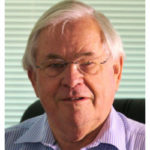Whatever the cause of our changing climate – natural variation or human-made – we should invest in adaptation.
Climate change, or ‘climate heating’, The Guardian’s preference, has been amplified in popular discourse because of sustained droughts, heat and fire. These exceed Dorothea Mackellar’s “sunburnt country of droughts and flooding rains.” Nonagenarians recall ‘seeing nothing like it.’
Ancient myths persist – homosexuality and same-sex marriage have angered God, who has ‘loosed the fateful lightning of His terrible swift sword’ in reprisal. Most Aussies, however, getting on with daily living, are agnostic or do not see it as top priority. Others believe that too much fossil fuel has been, and is being, burnt; we are trapped in a greenhouse of ‘toxic’ carbon dioxide (from fossil fuels) and cows’ colonic methane, preventing reflection of solar heat.
Polarised disputation has followed; dark motives and behaviour are ascribed to opposing camps – the denialists and the latté-drinking evangelists – as though each were possessed by the Devil.
Jane and John Citizen, even with science qualifications, struggle to make sense of it. We do not have the knowledge to interrogate and critically appraise the science. We are in that most dangerous of positions – relying on the authoritative statements of others, apparently sufficiently skilled, but often disagreeing with one another.
Scientific ‘knowledge’ is always sceptical and provisional. Today’s truth can be tomorrow’s falsified hypothesis (think of Warren and Marshall and peptic ulcer). Science sits uncomfortably – perhaps not at all – with certainty. Those sceptical about our hot spring weather (climate is ever-changing with troughs and peaks) being due to carbon dioxide can also claim to be committed to science for this reason.
Politics, by contrast, is littered with fizzled certainties – balanced budgets, universal access to health care, costs of light rail, highways or bridges. As the late biologist, Sir Peter Medawar, put it, ‘politics is the art of the possible, while science is the art of the soluble’. Political ‘solutions’ to climate change might be the best we can do. But political decisions cannot claim to be based on ‘irrefutable scientific evidence’. There’s no such thing.
This is no reason for doing nothing, but a reason for being clear about the basis for a particular action. History is littered with irrefutable certainties later rejected as rubbish. With climate change, we need to be clear about why we respond the way we do – and that science remains annoyingly sceptical about everything.
A further reason for a cautious reading of the rhetoric is that climate is complex and manifests differently the world over. This complexity is apparent in its short-recorded history. Losing sight of that complexity – like the complexity of cancer – can mislead us – into a hopeless war like Nixon waged on cancer.
As the saying goes, simple solutions (derived from misreading the problem) almost always turn out to be wrong. Public policy cemeteries contain many corpses which, when alive, were hailed as simple solutions. Indeed, so complex is climate that changes might qualify for the highest accolade when describing problems – ‘wicked’ (the word used by that highly qualified dissenter, Prof Judith Curry, member of the US National Research Council’s Climate Research Committee) – meaning that proposed simple solutions are readily absorbed by the avaricious problem, becoming part of it, and nothing changes. Take our endless ruminations about private health insurance (another wicked problem) – many thousands of pages of proposed solutions – which simply become part of the charade.
An examination of the causes of chronic diseases, including cancer, teaches us that multiple factors contribute. Modification of one of these, even when feasible, might not prevent cancer and do nothing to ameliorate established disease. Yes, tobacco may be an exception, but detecting and treating people with high blood pressure, which is physiologically complex, does not automatically reduce all associated dangers. When I practised respiratory medicine, I was impressed with the many patients with cancer who gave up smoking after receiving the diagnosis – a sad belief in magic.
Mankind is not as influential as we wish. Reducing the load of CO2 might or might not reduce temperature. Natural experiments are impossible, as are intervention studies. Scientific insights into causes do not lead automatically to solutions. Consider world-wide obesity – our inability to influence it, despite knowledge about good nutrition, exercise and ‘energy in versus energy out’, should teach us humility.
What should be our climate priorities? Efficient profitable technologies might relieve our dependence on fossil fuels. We don’t know if temperatures would fall. Planning should assume continued or sustained temperatures and possibly higher oceans. Health care planning should note expected changing patterns of disease. The world might have to deal with massive migratory shifts if rising oceans reclaim settled land.
The planning would best be done globally, but this would depend on the coordination and cooperation of inevitably competing nations. The decline in respect for the UN and similar organisations makes this unlikely. As the BMJ has reported this week (Full story doi:10.1136/bmj.l6876), “although healthcare is one of the five sectors most affected by the climate emergency, only about 29% of plans had funding in place to implement them even partly, and only 9% were channelling resources to implement them completely.” National responses may be the best we can do.
As temperatures might increase, Australian health services authorities could fruitfully explore the environmental architecture of new facilities, their location and service profile.
We are not powerless in confronting global heating. But we need to forsake fantastical ideas about causes to embrace the realities which will challenge many of our social institutions in ways not previously encountered.
Stephen Leeder is an emeritus professor at the University of Sydney




